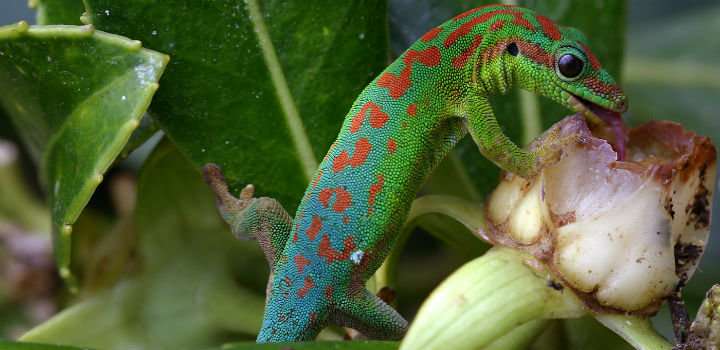Study highlights importance of vertebrate pollinators

The importance of birds, mammals and reptiles for pollinating plants around the world is the subject of a major new study involving the University of East Anglia.
Scientists found that preventing vertebrates – predominantly bats and birds – from visiting flowers to feed can reduce the amount of fruits and/or seeds produced by the plants by an average of 63 per cent.
The study, led by the University of Southampton, is the first global assessment of the importance of vertebrate pollinators for plant reproduction. The results are published in the journal Frontiers in Ecology and the Environment today.
Dr. Lynn Dicks, from UEA's School of Biological Sciences, said: "For the first time, we now have a global picture of how important pollinators are to wild plants and the ecosystems they are part of. It's sobering.
"So far, we've only looked at bird, mammal and reptile pollinators. These are much more important in tropical countries than here in the UK, although some of our birds, including blue tits, sometimes visit flowers and transfer pollen.
"We show that if we lost all those vertebrate pollinators, on average almost two thirds of fruit and seed production would be lost from the plants that depend on them for pollination.
"The best estimate we have is that 88 per cent of all the world's plant species are animal pollinated. The majority of wild plants in this part of the world are pollinated by insects and other invertebrates, rather than birds, mammals and reptiles. The next stage in our research is to measure the scale of expected seed and fruit loss in wild plants from loss of pollinating insects."
Lead author Fabrizia Ratto, a postgraduate research student in Environmental Biosciences at the University of Southampton under the supervision of Dr. Kelvin Peh, found that bat-pollinated plants were significantly more dependent on their pollinators than bird-pollinated plants.
In particular, vertebrates are known to be essential for the reproduction of some economically important crop species, including dragon fruit, durian and Parkia – often known as 'stink' beans.
In addition to being an important food source for people, plants that are animal-pollinated are also used for medicines and other materials and play a crucial role in the long-term maintenance of biodiversity and natural ecosystems.
The study has led the group to encourage increased efforts to conserve vertebrate pollinators after bird and mammal population declines driven by agricultural expansion, the spread of invasive non-native species, hunting and fire.
Fabrizia said: "A recent global study revealed that both mammal and bird pollinators are becoming increasingly threatened with extinction over time, with an average of 2.5 species per year having moved one Red List category towards extinction in recent decades.
"Animal pollination is necessary in the life cycle of many plant species and more research is needed to understand how environmental and other factors might affect wider ecosystems in future."
The team, which also included experts from the University of Cambridge, the RSPB, BirdLife International and Mexico's Instituto Politécnico Nacional, is calling for more research to be carried out on the pollination systems of plants and their vertebrate pollinator communities.
Dr. Dicks said: "Losing more than 60 per cent of available fruits or seeds in any habitat would be pretty catastrophic for animals that feed on those fruits and seeds, so the study gives us a measure of how important bird, mammal and reptile pollinators are to the ecosystem as a whole."
An estimated 87.5 per cent of the world's flowering plant species are pollinated by animals and 75 per cent of the world's major crop species benefit to some degree from animal pollination.
Over 920 species of birds – including hummingbirds, sunbirds, honeyeaters and lories—visit flowers and act as pollinators.
Bats are the most prevalent pollinators amongst mammals, known to pollinate 528 plant species in 67 families around the world.
Other non-flying mammals, including primates, rodents and marsupials are known to visit around 85 plant species worldwide and 37 species of lizard, mainly island-dwelling, are amongst the vertebrate pollinators studied.
"Global importance of vertebrate pollinators for plant reproductive success: a meta-analysis' is published in the journal Frontiers in Ecology and the Environment on Tuesday, February 6.
More information: Global importance of vertebrate pollinators for plant reproductive success: a meta-analysis: www.researchgate.net/publicati … cess_a_meta-analysis
Journal information: Frontiers in Ecology and the Environment
Provided by University of East Anglia




















